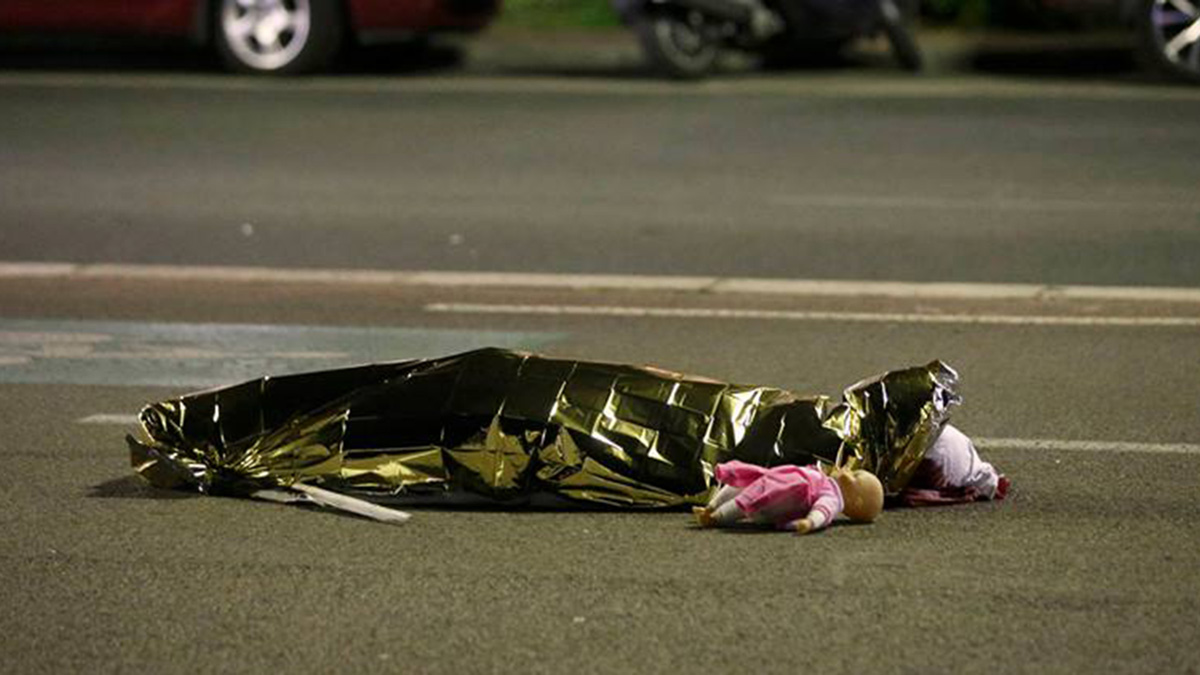Apologists and head-in-sand ninnies who wish to hand-wave away the horrors of terrorism commonly resort to silly arguments like “Oh, you have more chance of being killed by a refrigerator than a terrorist”. The stupidity of this argument is to pretend that there is any sort of moral equivalence between terrorism, falling refrigerators, car crashes or domestic violence. Certainly, no corpse is any less or more dead than another, but who would seriously argue that a child torn to pieces by a nail bomb and an octagenarian dying peacefully in their sleep are in any way morally the same?
Terrorism affects us in far greater and more insidious ways than just the relatively small number of immediate victims. Less than two decades ago, the public could wander in and out of Australia’s Parliament House with ease. Today, soldiers with automatic rifles stand guard while Australians file through metal and bomb detectors and a massive, ugly steel fence surrounds the once-idyllic lawns.
But it’s not just the seats of power that are being transformed in the ugliest ways by the threat of terrorism.
Organisers of a banana festival in northern New South Wales say the cost of implementing new anti-terror ‘hostile vehicle’ measures mean they have had to cancel their annual street parade.
The Tweed Valley Banana Festival at Murwillumbah has been held for 64 years, with the parade of floats through the town considered by many locals a festival highlight.
Festival co-coordinator Carol Mudge said for the first time, police have told organisers to implement hostile vehicle mitigation measures, aimed at stopping terrorists from ploughing into the parade’s spectators.
The defining characteristics of terrorism are not just the moral heinousness of terrorist acts, but also the intended effect on its targets. Terrorists aim to intimidate the broader population. To that end, they’re succeeding beyond their wildest dreams. Ugly “diversity bollards” have increasingly disfigured our major cities over the last decade. Now they’re coming for our small towns and disfiguring even the most innocent traditional events.
Ms Mudge said the festival could not afford the $10,000 it would cost to meet the requirements which involved installing barriers.
“It has decimated us,” Ms Mudge said.
“As a small festival in a small town, we cannot financially get a traffic control plan, then get cement bollards and then have security officers patrolling the streets, so this year we’ll have the floats at the showground, it might be our last year.”
Ms Mudge said while she understood public safety concerns about the use of vehicles as weapons, she believed the requirements were an overreach.
“Do we really think that ISIS is going to come to Murwillumbah because they don’t like bananas and try to run our 6-foot banana Jim off the street? I don’t think so,” she said.
Yet, councils across Australia and New Zealand have scaled back or cancelled Anzac Day celebrations. Police and military are warned not to wear their uniforms off-duty in case they are targeted. Commuters on Sydney trains are warned not to wear Christian crosses. A community in a traditionally Jewish suburb is refused planning permission for a synagogue – even as mosques proliferate.
The European experience has been the same: first, they came for big-name, symbolic events, now Christmas markets and music events in regional cities and even small-town supermarkets are being targeted.
At nearby Richmond Valley Council, general manager Vaughan MacDonald said the council has used creative measures to comply with police requirements, including placing council garbage trucks along the parade route of this year’s Anzac Day and Beef Week parades.
He said while questions needed to be asked about the guidelines, he believed there was a heightened risk.
“If you put all these tightening of requirements in the Sydney CBD and other areas, obviously there may come a point in time when those people who feel inclined to terrorism, they might target a festival in a regional area to make a point,” Mr MacDonald said.
However Murwillumbah local Carmen Stewart, who has convened a community meeting to try to save the banana festival parade, believed the rules were tearing at the fabric of regional towns…“If you stop people gathering, you lose just not things that have a heritage, but that’s when trust breaks down in the community”.
msn
Well, that’s the point, isn’t it? As a counter-terrorism expert interviewed on Whaleoil has said, it’s part of the Islamic supremacists’ plan: to terrify Western society into submission. “That is a form of dhimmification. They’re dhimmifying the entire society.”

